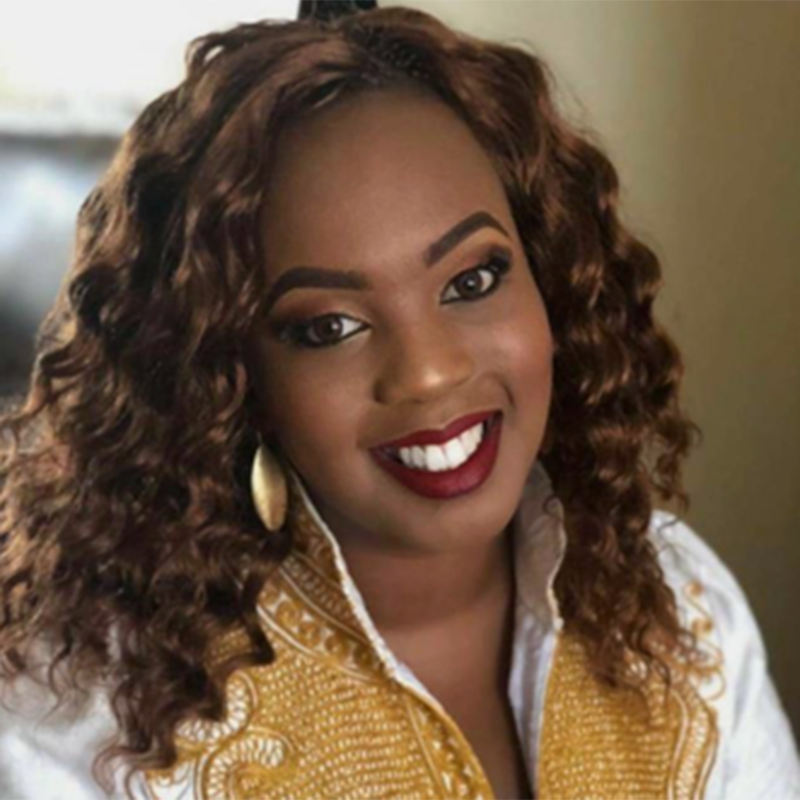Angela Gichaga on the White House Health Workforce Initiative
As the White House develops a new initiative to strengthen the global health workforce around the world, we spoke with Angela Gichaga, CEO, Financing Alliance for Health. We talked about what she thinks the Biden Administration needs to consider in order to help build a strong and sustainable health workforce in Africa.
What policies or approaches do you recommend that the White House prioritize for this initiative?
I recommend that the White House prioritize the frontline health workers: from primary care facilities to community health workers.
The pandemic has added significant pressure to underfunded health facilities in low- and middle-income countries and disrupted the provision of essential health services that could result in a staggering loss of life, reversing years of progress made through billions of dollars of investment by the US Government and its partners.
Fortunately, years of investment by US Government have created critical health infrastructure, expertise, and country capacities that can be leveraged to respond to COVID-19 – quickly and effectively – and prevent the next pandemic. Chief among these capabilities is the training, deployment, and equipping of Community Health Workers (CHWs), who are key to maintaining essential health services and containing outbreaks.
Through investments alongside the United States, investments in the Africa Frontline First Initiative can be channeled in an integrated fashion through proven, established platforms with immediate absorptive capacity which will serve a triple duty: help close the health workers gap required to address leading health issues; surge the response to and recovery from COVID19, including the rollout to remote communities of testing, therapeutics, and vaccines; and accelerate pandemic preparedness and global health security.
These investments would leverage the commitment by African Union Member States to recruit and train two million frontline community health workers in the longer term.
How best should the US help address shortages of health workers?
The US government should take a whole of responsive system and continuum of health care approach. Responsive health systems deliver care that is needed (based on the burden of diseases) and in a way that is wanted (where communities are at the centre, shaping, co-delivering and experiencing health care as community health workers as well as beneficiaries)
With this in mind, the US government should explore increasing its investments in a multi-disciplinary frontline health cadre that is close to the community, relatively easy to mobilize and upskill, and can focus on mitigating the risk factors of the burden of disease. CHWs are such a cadre and the US government can build on its previous investments to catalyze a new level of commitment from diverse players.
Do you think any particular agency should lead the initiative? PEPFAR? USAID? CDC?
I believe USAID should lead given its extensive in country network and given that their mandate has a more integrated lens. It isn’t something new to them and they can leverage existing programs.
Considering multilateral efforts like Gavi, Global Fund, and the GFF, how should the US influence these so they could have a bigger impact on the workforce?
The US has a major opportunity with the Global Fund, since the US will be hosting the Replenishment. This is a unique opportunity for the US to say we need to scale up support for community health cadres. My team is working with the Global Fund on a catalytic fund to help countries expand community health workers.
The US should consider how to ensure alignment of its bilateral investments with the Fund and complementarity in the countries.

Dr. Angela Gichaga is a public and social sector enthusiast with experience working across civil service, consulting, and NGOs and academia. She now serves developing country ministries of health and ministries of finance globally, in building resilient and sustainably financed primary and community health systems as CEO of the Financing Alliance for Health.
Angela completed her undergraduate degree in Medicine, Masters in Health Economics and Policy and Fellowship in Public Sector Management and has served as a frontline clinician, health administrator, policy maker, academic and consultant. Angela served the MOH Kenya as a District Medical Officer of Health (DMOH) and a hospital in charge (MEDSUP) in both Meru and Garbatulla, leading ~150 multi-disciplinary team members through coordinating strategic planning, resource mobilization, service delivery, recruitment, monitoring and capacity building. She then joined the MOH HQ, where she supported health financing, co-developed national strategies and prepared reports on the country’s health achievements.
